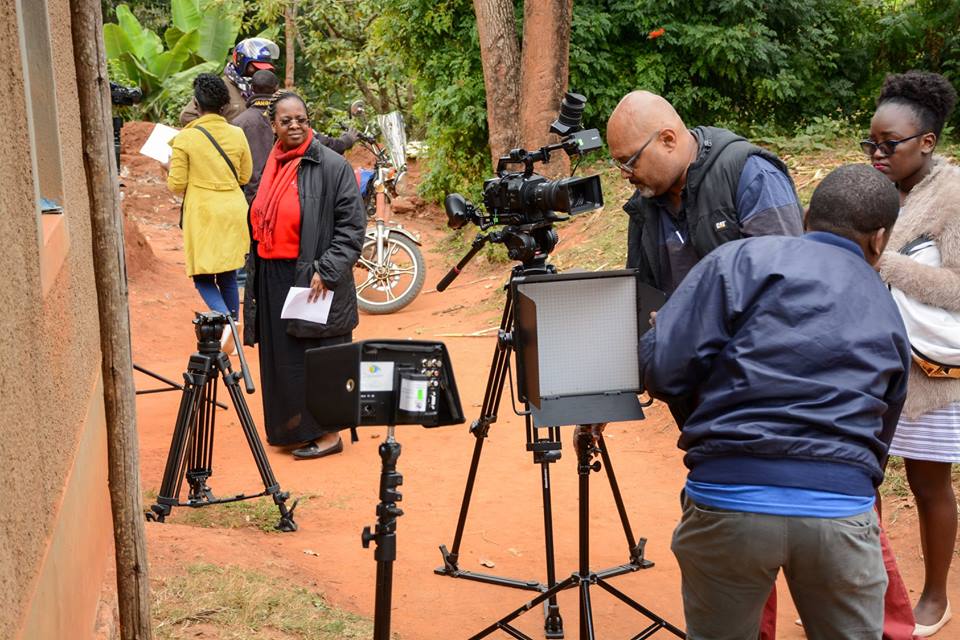
Creativity and technology are an integral part of the film industry and hence help the industry grow beyond the regular threshold. Social media, for example, is taking over the traditional ways we use to consume film.
In this interview, Martin Munyua, the Director of Dreamcatcher Productions Kenya talks about these trends and how they’re supporting the growth of the local film industry.
Social media is fast taking over traditional ways of consuming Film, for instance, there are people who waited for Black Panther to be available online instead of going to the theatres, what are your thoughts on how online media has made Films readily and easily accessible.
How we consume films has changed; working hours in many industries have become flexible, it is no longer strictly 9-5, which was predictable and allowed you to plan your weekdays and weekends. Because of this unpredictability, it is much easier, when you get the time, to click a button and watch a movie. People are looking for more comfort.
Secondly, we have lost the movie experience, which requires one to totally switch off other things and focus on the film. We have distractions, majorly our phones. We don’t give ourselves chance to enjoy the films, which beats the reason for going to the theatre.
What are the emerging trends in Film Production? What new equipment do we now see being brought into the game/new ways of Film transmission/production?
The drone and the gimbal. These gadgets have reduced set-up time for dolly/tracks and added a lot of movement in filmmaking techniques. We get to film at a different point of view-the bird’s eye view that we wouldn’t see in real life. We have also seen improvements when it comes to cameras. Manufactures have been upgrading to 4K, 6K and even 8K. I also see anamorphic lenses coming back. We are also looking at new ways of Film transmission like Netflix and YouTube, which have made films very easily accessible. I, however, feel that we are putting more emphasis on the gadgets we use instead of focusing on telling the story; which shouldn’t be the case. We are more interested in ‘wowing’ the audience on our camera skills than on telling them the story. Focus on the content; script first.
In a bid to tell the African Story this year, which is Dreamcatcher’s theme, how do you see technology playing into enabling you to achieve this goal?
We research content online, that’s a start. Otherwise, scriptwriters would be sitting in libraries going through volumes and volumes of work. We are also using online platforms to purchase footage, music, that aid in telling the African story. When we talk of technology we need to look at it as a whole, and not just look at physical gadgets aiding in the process.
Is the government creating an enabling environment for Film Producers? It took quite a while for drones to be legalized, we also had the film on Westgate attack being shot in South Africa. What are your thoughts…
Ten years down the line, we are still trying to come up with a Film Policy document, which basically is a document that answers the question any foreign film producer would ask. Again, when it comes to locally produced films, the government should be focusing more on incentives and making it easier for local and upcoming filmmakers to practice their craft and make films. Free access to government buildings and various assets can help tremendously. Instead of banning films such as Rafiki, it should instead be rated 18+, adults are able to make informed choices.
The general sentiment across Film industry players is that we, as a country, still have a long way to go in terms of Film Production. But we are already hosting Riverwood Awards, amongst others. Do we need to put in more work first, in terms of the amount and quality of content we churn out?
The awards are good, because it recognizes those putting in the work, as well as encouraging people to go out there and make more films. However, the conversation we are however not having in relation to these awards is what happens next? Do the winners get endorsements, deals? We are focusing on the glamour of awards rather than the financial/marketing aspect of it. It is not just about the awards, but what happens after, as a result.
Have you inculcated use of Apps to enable transmission of some of your productions? Eg. Ronga TV. How effective has this method been? What has been the uptake? Do Kenyans consume more content via Apps or websites?
Ronga TV was a first in Kenya. Content owners, unfortunately, were stuck up on traditional ways of film consumption, which is TV. They did not see this as our own local version of Netflix, which is what it was, plus we were offering a really fair deal. The uptake was not good, I think we are still at a point where we appreciate and invest in foreign innovations than we do our own.
Where do you see Kenyan Film production in the next few years?
If we continue this way without a policy, a number of film productions companies will shut down, but also many young independent producers will come up. The movies will be there, but will not have components of a proper production because of lack of finances and resources.
How does your company, Dreamcatcher, stay on top of its competitors in the market/ What do you do differently? Which unique service do you provide/ is there a particular industry you serve that other production companies have not yet tapped into (Humanitarian/NGOS)
Capacity building is key at Dreamcatcher Productions and we do this for our employees. This has been our main strength. We work with talented individuals who are passionate about Film Production and train them to be the best. This means we end up having a team of exceptional individuals, who are able to churn out great productions for our clients.
We have made a niche in agricultural and humanitarian film productions. We have perfected the art of telling these stories, of people changing lives, taking positive strides to build nations. Our tagline reads, inform, impact, inspire; we mean it.
Rafiki, the Kenyan Film was banned. The film, however, went ahead to bag international awards and has been viewed and screened in France, and Ghana. Do you think KFCB laws and criteria in what passes as fit for public consumption is flawed? Should the criteria be revised?
I don’t think banning a Film in 2018 is sensible. What we need is classification, make it an 18+ film because adults are able to make their own informed and independent choices.
What inspires you. What keeps you positive about Film in Kenya/ what drives you.
Passion for film, and an eye for all things beautiful. I love telling stories and listening to other people’s stories.
- Check out best drone for teenager.
Follow us on Telegram, Twitter, Facebook, or subscribe to our weekly newsletter to ensure you don’t miss out on any future updates. Send tips to info@techtrendske.co.ke





One Comment